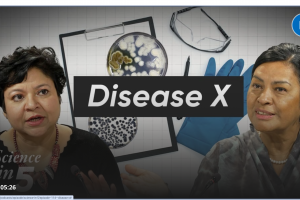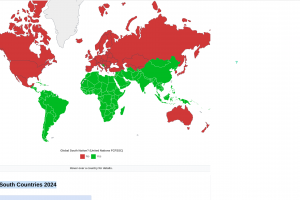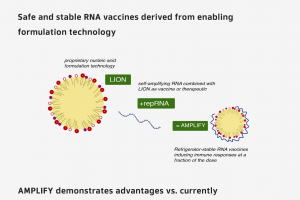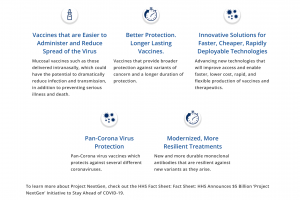Disease X
Disease X 2024
The term Disease X was included for the first time in February 2018 by the World Health Organization (WHO) Blueprint list of diseases, which includes diseases such as Zika, MERS, and Ebola. According to the WHO, Disease X represents the knowledge that a serious international epidemic could be caused by a pathogen currently unknown to cause human disease. Based on the WHO's announcement in 2020, COVID-19, caused by an unknown etiology, can be recognized as the first Disease X. On Jan. 17, 2024, Tedros Adhanom Ghebreyesus told a World Economic Forum Preparing for Disease X panel discussion, "We should not face things unprepared; we can prepare for some unknown things as well." On Feb. 14, 2024, at the World Government Summit, the WHO's Director commented that the planet is "unprepared" for a Disease X outbreak or future pandemics. In December 2021, the World Health Assembly established an Intergovernmental Negotiating Body (INB) to draft and negotiate a convention, agreement, or other international instrument under the Constitution of the WHO to strengthen pandemic prevention, preparedness, and response. On Mar. 15, 2024, the WHO's Science in 5: Disease X; Episode #114 was published. Ana Maria Henao-Restrepo, Co-Lead R&D Blueprint for epidemics, outlines the R&D needs the world needs to pay attention to and how to prevent and prepare for the next pandemic.
Disease X Coalition for Epidemic Preparedness Innovations
Disease X is supposed to be caused by a "pathogen X" that is expected to be a zoonosis, disease, or infection that can be transmitted between humans and animals, most likely an RNA virus, wrote Richard Hatchett, chief executive officer of the Coalition for Epidemic Preparedness Innovations (CEPI). CEPI's $3.5 billion, 5-year plan lays out a $3.5 billion roadmap to compress vaccine development timelines to 100 days. Disease X is a priority disease for CEPI's research and development investments. "Compressing vaccine development against emerging pathogens down to 100 days will be critical to combatting future pandemic threats", explained Dr. Jakob Cramer, Director of Clinical Development at CEPI. The CEPI, founded in 2017, established a Centralized Laboratory Network of ten laboratories to standardize immunological assays, provide testing support to vaccine developers, identify the immune correlates of vaccine protection, and facilitate approval and dissemination of the most influential vaccine candidates. On January 23, 2024, Serum Institute of India Pvt. Ltd (SII) joined CEPI's network of vaccine producers in the Global South.
Disease X Pandemic Preparedness Plan
The U.S. National Institutes of Allergies and Infectious Diseases (NIAID) developed a Pandemic Preparedness Plan to prepare for future public health emergencies caused by infectious diseases. While it is recognized that pathogens other than viruses could lead to public health emergencies, the NIAID Pandemic Preparedness Plan focuses on viruses that could cause epidemics or pandemics. With a mandate to anticipate next-generation threats, DARPA has helped lay technological foundations for ending COVID-19 and preventing future pandemics. On Jun. 5, 2023, H.R.3832 - Disease X Act of 2023, 118th U.S. Congress (2023-2024), was introduced by Rep. Lori Trahan, Dan Crenshaw (R-TX-02). This U.S. bill expands the Biomedical Advanced Research and Development Authority (BARDA) priorities to include viral threats that could cause a pandemic. "Disease X is the culmination of what amounts to a conceptual shift in how the country prepares for infectious disease threats to enhance resiliency in a truly proactive manner," said Dr. Amesh Adalja, Senior Scholar, and Project Director for the Disease X Medical Countermeasures Program Project at the Johns Hopkins Center for Health Security. A One Health approach has also been proposed that provides a complete way to address the underlying issues for the spread of Disease X diseases.
In February 2024, the U.S. NIH All of Us Research Program confirmed over 1 billion genetic variants, including about 275 million previously unreported ones. This program enables the study of human biology at an unprecedented scale.
WHO Pandemic Agreement
The ninth International Negotiating Body (INB9) meeting ended in March 2024. WHO Member States agreed to resume negotiations on the draft agreement in May 2024 to finalize a WHO Pandemic Agreement. The U.S. is committed to contributing to the Pandemic Fund, including $700 million to date. The United States Agency for International Development (USAID) plans to provide a $250 million contribution to the Pandemic Fund, subject to Congressional notification.
Disease X Pandemic Legal Limits in the United States
In February 2024, the BMJ published an analysis by Stanford Law of 65 laws adopted in 24 states from January 2021 through April 2023, imposing limits on pandemic restrictions. They found substantive restrictions on officials during health emergencies. For example, four states adopted prohibitions on requiring vaccines or proof of vaccination, five prohibited mask mandates, seven limited officials' ability to close businesses, and 11 restricted the ability to restrict religious gatherings. Another group of reforms imposed procedural constraints on exercises of public health power, such as shortening the number of days a governor's emergency declaration can be in effect without the legislature voting to confirm it. They concluded, 'This federalist design (of U.S. laws) is a considerable impediment to implementing nationwide community mitigation measures for pandemics.'
U.S. Global Health Security Strategy
The U.S. Global Health Security Strategy was announced on April 16, 2024, to promote a collaborative, multisectoral, and transdisciplinary One Health approach that recognizes the interconnection between people, animals, plants, and their shared environment and the importance of coordination across government, business, and civil society.
U.S. Preparedness Plan For Infectious Disease Outbreaks
In 2015, the U.S. Government Accountability Office (GAO) recommended that the Department of Transportation (DOT) create a national aviation preparedness plan for infectious disease outbreaks. In July 2022, the GAO reported that federal leadership was needed to advance research on disease transmission in air travel, including real-world situations and the effectiveness of mitigation efforts. Furthermore, the GAO recommended Congress direct the Federal Aviation Administration to develop a research strategy, which the U.S. Congress had not done as of March 2024. According to an April 18, 2024 report from the GAO, the Department of Health and Human Services (HHS) failed to respond effectively or coordinate a national response to the 2022 mpox outbreak. Moreover, HHS still lacks a coordinated, department-wide after-action program to identify and resolve recurring emergency response challenges.
On May 6, 2024, the Biomedical Advanced Research and Development Authority (BARDA), part of the US HHS, announced two hubs in its next-generation BARDA Accelerator Network (BAN) targeting diagnostics and medical devices and the other focused on therapeutics and vaccines. The Vaccine Innovation and Therapeutic Acceleration Launchpad Hub is led by Start2 Group, a global accelerator and startup ecosystem platform based in Cambridge, Massachusetts.
World Bank Pandemic Fund
The World Bank Pandemic Fund is a financial intermediary fund (FIF) for pandemic prevention, preparedness, and response (PPR), officially established by the FIF Governing Board at its inaugural meeting in September 2022 under the International Health Regulations (IHR) (2005), and any amendments or enhancements thereof, as well as other internationally endorsed legal frameworks, including the Pandemic Agreement by the member states of the WHO.
Europe Health Emergency Preparedness and Response
The Health Emergency Preparedness and Response (HERA) department aims to prevent, detect, and rapidly respond to health emergencies. Created in the aftermath of the recent pandemic, HERA will anticipate threats and potential health crises through intelligence gathering and building the necessary response capacities.
Potential Disease X Risks
The Lancet Infectious Diseases published a study on April 16, 2024, highlighting the impact of infectious diseases on global health. Globally, in 2019, an estimated 704 million DALYs were associated with 85 different pathogens. Three leading pathogens were responsible for more than 50 million DALYs each in 2019: tuberculosis (65·1 million), malaria (53·6 million), and HIV / AIDS (52·1 million).
Potential Disease X Vaccines
Bacille Calmette-Guerin (BCG) Vaccine - Data indicates non-specific protective effects against other respiratory tract infections and a balanced immune response comprising pro- and anti-inflammatory mediators. BCG has been used to prevent and treat various diseases, including tuberculosis and bladder cancer.
Disease X News
January 23, 2024 - Adar Poonawalla, CEO of the Serum Institute of India, said in a press release, '...This (CEPI) collaboration will enable us to respond more rapidly and equitably to public health disease outbreaks, particularly in Global South countries where access to life-saving vaccines can be limited.'
January 17, 2024 - This Disease X session is linked to the Partnership for Health System Sustainability and Resilience and the Collaborative Surveillance Initiative of the World Economic Forum.
November 27, 2023 - Since October 2023, the WHO has been monitoring data from Chinese surveillance systems showing increased respiratory illness in children in northern China. The journal Nature published an article: What's behind China's mysterious wave of childhood pneumonia?
September 19, 2023 - The CEPI and Bio Farma have entered a 10-year partnership to boost the rapid manufacturing of outbreak vaccines at Indonesia's leading vaccine manufacturer. The collIndonesia'sill help to bring cutting-edge mRNA and viral vector quick response vaccine manufacturing technologies to the Association of Southeast Asian Nations (ASEAN) region and reserve manufacturing capacity to supply Global South countries during future outbreaks and pandemics to combat the type of devastating inequity witnessed during the recent pandemic.
September 19, 2023—The CEPI Centralized Laboratory Network, which consists of ten laboratories, standardizes immunological assays to help prepare for future disease outbreaks.
July 26, 2021 - Cambridge University Press: Disease X: A hidden but inevitable creeping danger. The COVID-19 pandemic was not the first to wreak havoc on the world, and it will not be the last. Thus, we must prepare for the next outbreak as soon as possible.
Disease X Overview
EcoHealth Alliance says there are about 1.67 million unknown viruses on Earth, and over 631,000 can infect people. Scientists currently know of only 263 viruses that can infect people, meaning we know almost nothing about 99% of potential pandemics in the U.S. for a Disease X Event. According to the BMJ, a U.S. project (DEEP VZN) seeking viruses among wildlife in Southeast Asia, Africa, and Latin America to prevent human pandemics was discontinued by the United States Agency for International Development (USAID) on September 23. In 1976, William H. McNeill published a book that took a new approach to disease history. Plagues and Peoples showed a pattern of what he called "fateful encounters" between infectious diseases and world events. President Obama awarded McNeill a 2009 National Humanities Medal.
Project NextGen
Project NextGen is a United States government program that will develop the next generation of vaccines and therapeutics.





